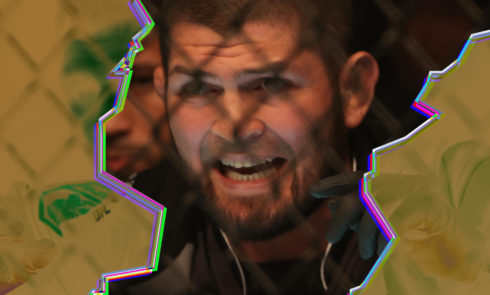Iran’s Supreme Leader Ali Khamenei has lauded its fighters in Syria, known as "defenders of the Holy Shrine" as pivotal in safeguarding both Iran and the broader region "against threats."
In a Saturday address, Khamenei described "the Defenders of the Holy Shrine" as young individuals from various nationalities who embody the Islamic Republic's worldview. The Islamic Republic authorities specifically use this term to refer to Tehran-backed militias deployed for more than a decade to fight for Syria's strongman Bashar al-Assad.
“The enemy intended to seize the region and simultaneously impose economic, political and ideological pressures on Iran to undermine the Islamic system when a group of devout youths, led by the Islamic Republic of Iran, foiled the arrogant powers’ plot,” Khamenei said in a meeting with the members of the International Congress of Martyrs of Resistance and Defenders of the Shrine.
In Iraq also, armed proxy forces established and supported by Iran are sometimes called defenders of the Shrine, perhaps referring to Islamic State attacks on Shiite holy sites.
Khamenei emphasized the significance of these groups portraying them as exemplars of Iran's strategic outlook and commitment to regional stability. In fact, these groups are used to pressure regional governments, secular forces, attacking Israel and US interests.
The involvement of Iranian forces in Syria, spearheaded by the Islamic Revolutionary Guard Corps (IRGC) Quds Force under Khamenei's direct command, commenced in response to the uprising against President Bashar al-Assad during the Arab Spring in 2011.
Initially positioned as support to prevent Assad's regime from collapsing under widespread protests, Iran's military intervention evolved into a sustained effort to bolster Damascus against opposition forces and extremist groups and also to enhance Tehran's strategic position for continued confrontation with Israel.
Iran’s intervention in Syria has drawn significant international criticism. Critics argue that Tehran’s support has prolonged the conflict, exacerbated regional instability, and contributed to substantial casualties and displacement. Hundreds of thousands of civilians have been killed in the conflict, with Iran, Russia and Assad forces using overwhelmingly destructive weapons against large cities such as Aleppo.
Moreover, the economic strain of maintaining military operations abroad has added to domestic discontent within Iran, particularly amidst ongoing economic challenges exacerbated by international sanctions.
A series of anti-government protests in Iran since 2017 have underscored public dissatisfaction with the government’s prioritization of regional military engagements over domestic economic needs. Demonstrators have voiced grievances against Iran’s extensive political and financial support for groups like Hamas in Gaza and Hezbollah in Lebanon, chanting slogans such as “Neither Gaza nor Lebanon, I’ll sacrifice my life for Iran.”
The latest presidential election in Iran, held amidst these tensions, saw voter turnout fall below 40%, signaling widespread disillusionment with the political establishment. Despite this, Khamenei did not mention voter participation in his speech, emphasizing the continuation of his strategic policies.
Additionally, despite Iran's substantial military and financial support to Syria, it appears that President Assad may be undermining Iranian interests, suggesting that his priorities lie elsewhere. Syria’s recent decision to re-engage with the Arab League after years of diplomatic estrangement has sparked concerns in Iran about diminishing influence over Assad’s regime.
Syria’s alignment with the Gulf Cooperation Council (GCC) on regional issues, including the UAE’s dispute with Iran over three strategically located islands in the Persian Gulf, has underscored regional shifts potentially detrimental to Iranian interests.

 2 days ago
18
2 days ago
18

